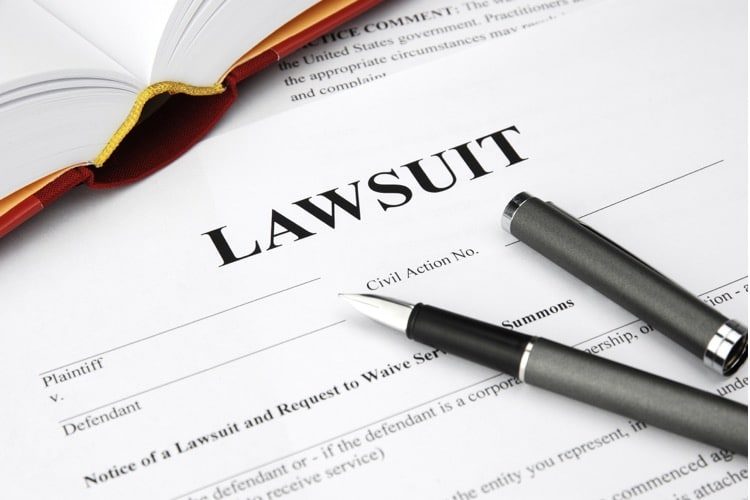by Bob Adelmann October 30, 2024 ( October 30, 2024 )
 eccolo74/iStock/Getty Images Plus
eccolo74/iStock/Getty Images Plus
David Burg, a 67-year-old attorney practicing in Freehold, New Jersey, filed a complaint last week in the U.S. District Court of New Jersey. He claims that law-enforcement officials unlawfully and without warning showed up at his home with a red-flag order in hand and forcibly removed all his firearms.
After iterating the recent Supreme Court Rulings in District of Columbia v. Heller (Heller), and Bruen (New York State Rifle & Pistol Association v. Bruen), Burg complained:
The State of New Jersey has, apparently, not gotten the message.
New Jersey is piling on its suppression of the fundamental right to keep and bear arms using every possible means, including its grossly unconstitutional Extreme Risk Protective Order Act of 2018 (“ERPO Act”) — a law that fails even the most basic requirements of Due Process and treats the Second Amendment worse than a second class right. The ERPO Act treats the Second Amendment as if it does not exist.
That act not only allows confiscation without a trial, it also allows local law-enforcement officials to confiscate firearms without letting the citizens know they’re coming for them. It’s called ex parte, defined as a “court proceeding for the benefit of one party to a controversy without the other party being present.”
As Burg explains,
The ERPO Act allows certain petitioners, including police agencies, to completely disarm an individual based on an ex parte record, based on hearsay, and based on a nebulous and weak standard of proof identified merely as “good cause.”
Not only does New Jersey’s red-flag law ignore the Fourth Amendment’s demands that any action be taken only on the basis of “probable cause” and not the much lower standard of “good cause,” it also allowed officials to “suddenly” show up at Burg’s home and seize his firearms, “rendering him utterly defenseless and entirely unable to exercise his fundamental right to keep and bear arms.”
Burg’s Crime
What was Burg’s heinous offense? According to the lawsuit,
Mr. Burg had several days earlier exercised his right of lawful self-defense by showing the muzzle of his lawfully carried Glock 43x micro pistol to a driver who had been relentlessly and threateningly pursuing Mr. Burg for miles.
But the other driver got to the police first, and falsely reported that Mr. Burg had pointed a gun at him unprovoked.
So rather than investigate the incident in a systematic and evenhanded manner, the State Police Defendants, in an astonishingly unprofessional and irresponsible manner, applied the “Guy With The Gun Is The Bad Guy” presumption.
The result was that Mr. Burg was summarily disarmed and denied his fundamental constitutional rights without any opportunity to tell his side of the story and without the Defendants having had to satisfy even the most basic obligation to create a reliable and rigorous record.
The lawsuit notes,
If this can happen to Mr. Burg, this can happen to any law abiding New Jerseyan who holds a Permit to Carry a Handgun and urgently needs to exercise [his] fundamental right to lawful self-defense outside [his] home.
Burg calls the state legislature’s response to the Bruen ruling an act of defiance:
The ERPO Act is part of the State of New Jersey’s blatant refusal to accept the ruling of the United States Supreme Court. On June 24, 2022, the day after the Bruen decision was handed down, New Jersey Governor Phil Murphy announced his plan to undermine the ruling in every way possible. The ERPO Act is simply a part of that plan to make good on that unlawful promise.
Flawed Premise
According to the Rand Corporation, red-flag laws do not bring any appreciable reduction in gun violence or suicide. After reviewing several recent studies that attempted to prove that red-flag laws work, only five survived initial scrutiny. One of those five showed a slight decline (four or five percent) in suicide rates. None showed a reduction in gun violence.
Mallory Perazzo, a professor at the University of Cincinnati College of Law, affirmed what Rand had uncovered. “Studies have not shown that homicide rates have been influenced [by the passage and enforcement of red flag laws],” he noted.
Perazzo went further: “Many of the [states’ red flag] statutes provide no means to prevent individuals from [as in the present case] maliciously accusing others, so [that] third parties may easily abuse the system.”
Ever since the first red-flag law was passed in 1999, numerous lawsuits have been filed against them. And in most cases, lower courts have found ways to rule them constitutional. So the issue is ripe for review by the Supreme Court. As Perazzo noted, “If the [Supreme] Court holds all [red-flag laws] to be unconstitutional, then the issue of whether states ought to adopt them will become moot.”
In the meantime, law-abiding gun owners such as New Jerseyan David Burg will continue to suffer under the states’ unconstitutional acts of defiance to Bruen.




